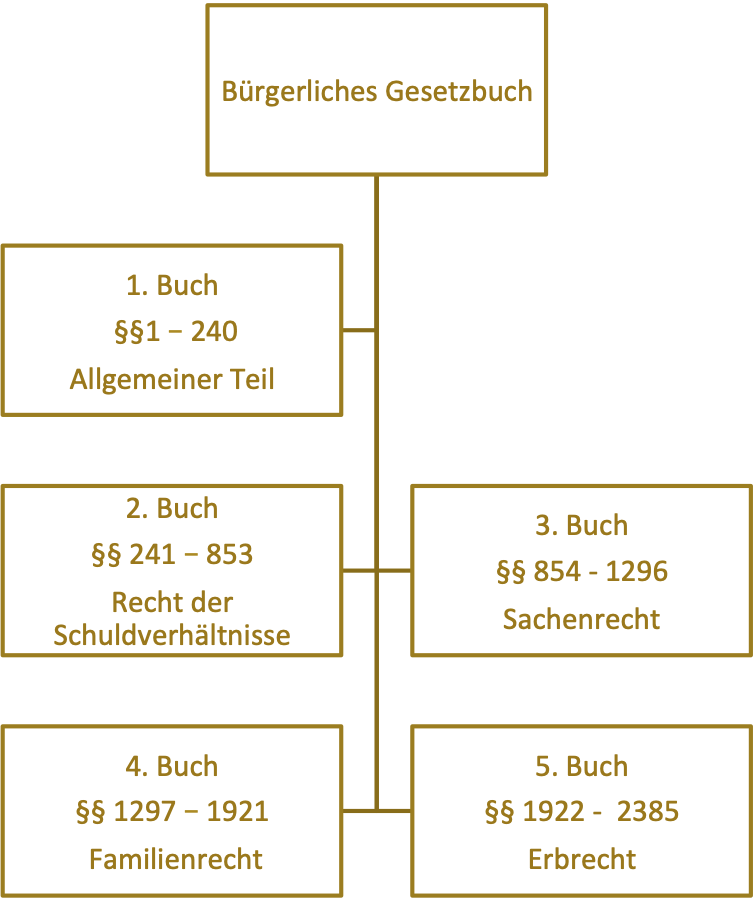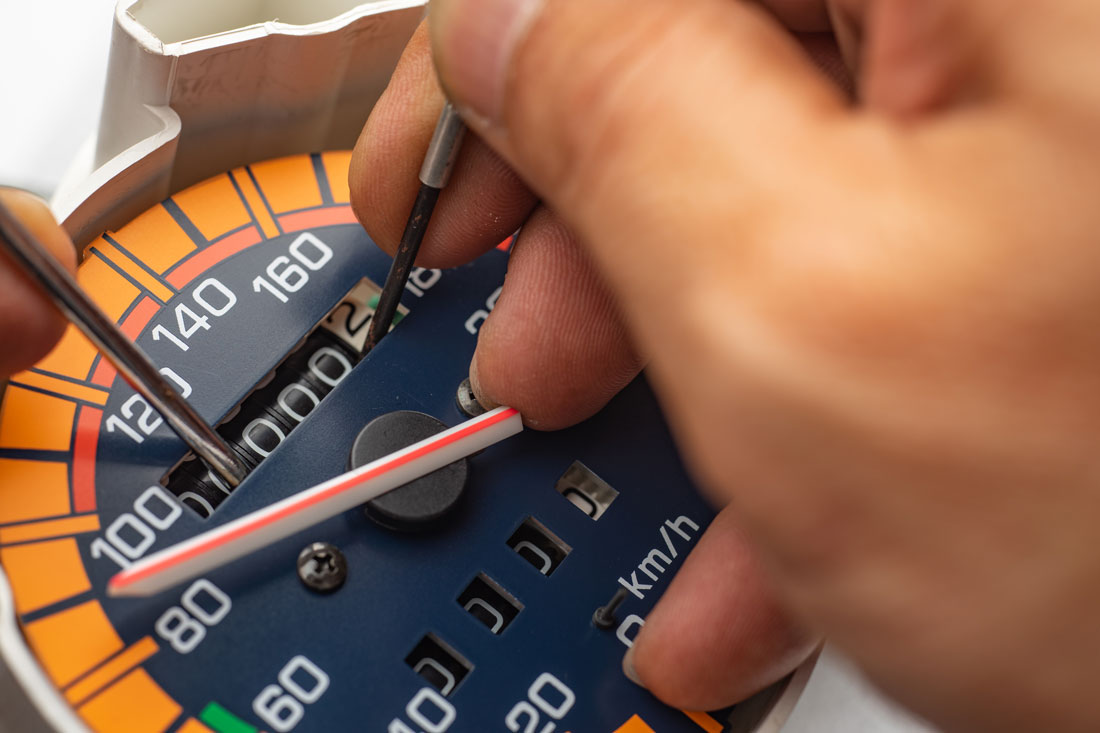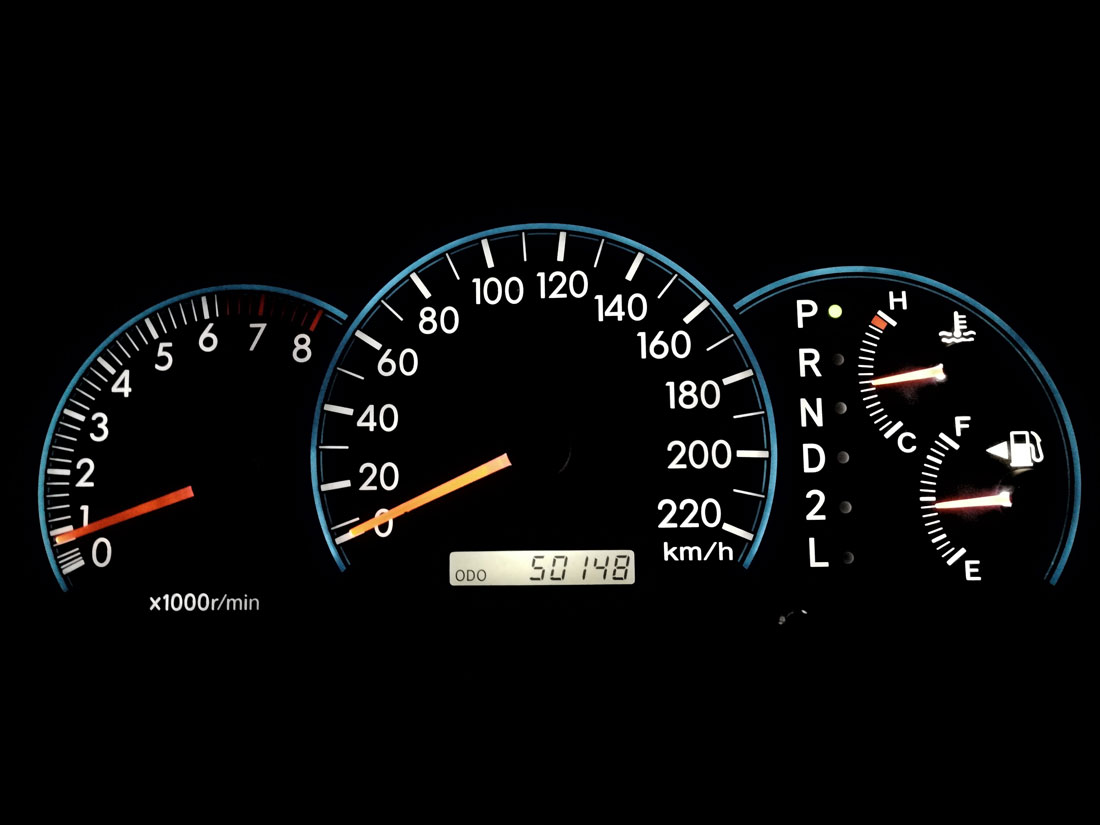4 Rules: What you have to consider buying an used-car in Germany?

Summary:
This article from 2019 sums up the legal situation related to buying a car and the possible risks. The information found in this article is based on experiences of "COS Stuttgart", as well as official sources. Key points to know:
- Being a car dealer in Europe, you do not need any qualification, certificate of proficiency or any license test (IHK Frankfurt)
- Every year 8.66 million used cars are sold in Germany, 50% of them are sold by authorized dealers (Federal Statistical Office Germany )
- 33% of all used cars sold in Germany have manipulated mileage (German Police statistics and ADAC)
- The used car market has the highest rate of manipulation and misconduct (Stern Magazine)
- In average the German cars are 9.4 years old (Federal Statistical Office Germany)
- In 2018 ADAC had about 4 million breakdowns (ADAC)
- Even authorized repair shops do not perform car inspections correctly or they “forget” important points to check (Auto Motor Sport, Auto Bild, own experience by COS Meisterwerkstatt doing inspections of customer vehicles after it was at authorized repair shop)
- 2.5 million car accidents are reported each year (Federal Statistical Office Germany)
- Many vehicles are offered as "accident-free", even though they have been involved in an accident (experience of COS advising a Japanese buyer of a vehicle purchase from a car dealer)
- Vehicles are sold at high prices by dealers, claiming to offer a mandatory warranty (experience of COS in assisting the purchase of a car of a Japanese customer)
-Rental cars (please never buy a rental car!!!) are defined as "company cars" to hide the real story behind it (experience of COS in supporting of vehicle purchase for a Japanese customer at VW Stuttgart)
-for a normal private person, it’s impossible to uncover cheaters (experience of COS customers, before they came to us)
-in Germany the purchase at a dealership leads automatically to a warranty obligation, that is German law. However to enforce this in practice is very difficult (HGB, BGB, experience of COS in assisting the purchase of a Japanese customer's vehicle purchase)
-a guarantee (in Germany that’s a kind of insurance with open/individual terms and conditions) is not to be misunderstood with a warranty obligation (terms of guarantee, German law BGB)
-the purchase of a used car is a matter of trust. In fact you will have a lot of trouble and costs, if you do business with the wrong people (Experiences of customers, before they knew COS)
Preamble:

"We saw a wonderful low-cost, low-mileage Mercedes-Benz E-Class at a car dealer, which would be the perfect vehicle for me, my wife, and our two children during his expatriate work in Stuttgart. The dealer assured us several times the car is be accident-free”, said our Japanese customer to COS Stuttgart, as he wanted to buy this car in a hurry.
He requested COS Stuttgart to check the car technically, to negotiate the price, to contract the necessary car insurance and to register the car.
We accepted the task and, together with our customer, visited the car dealership
Based on our experience, we immediately recognized the following: The vehicle had obviously a strong frontal damage in the past and the entire front had been replaced. Someone who is not a car specialist, would likely miss it. We enquired the dealer in the presence of our customer: "are you really telling us, this vehicle is accident-free?" He stammered, yes there was something....But he repaired the damage with his brother...over there in the garage..."
Of course, we did not buy the vehicle from this cheater! Instead we won the unquestionable confidence by our customer who followed our advice: to buy a vehicle, offered by a private seller. This car was owned by a senior executive and it was only owned by him. The vehicle had a perfect service history and is in perfect technical condition, therefore: safe. No problems to be expected.
Car dealers have a bad reputation. Not only in Germany. Based on the fact that you do not need any education or reliability check. Many of our Japanese customers previously had bad experiences with car dealers in Germany and therefore contacted COS Stuttgart
Because COS stands for trust, professionalism and reliability.
But not everyone realized at first, that they had been cheated on their purchase. For example, a rental car was declared to a Japanese expatriate as a "company car", when he bought it from authorized dealer. As he wants to travel back to Japan and re-sell the car, he could not find a potential buyer, since buying a former rental car is not a "good investment".
In this extensive article, we want to inform about the German laws, the background and really want to warn people buying “carefree”.
We will give you recommendations on what you should do and look for.
Who is a car dealer according to German law?
To work as car dealer or to run a business as car dealer, you do not need any specific education nor any licensing requirements.
As a matter of fact there is:
-no check whether the person has any technical knowledge and / or competemce to evaluate the vehicles
-no background checks by an authority
Actually Germany is very strict, that people are highly educated to run a business (e.g. you must be Meister to run a handicraft business; §1 and § 7 Handwerksordnung) or you must provide a certificate of good conduct for running business where reliability is needed (reliability check § 34C Gewerbeordnung).
But, running a car dealership is an exception. As a result: everybody can open a shop, also the ones who are dangerous and cheat. Sorry to say the truth.
Who is not a car dealer?
Of course, people can sell their car in a private way.
In this case, only the civil laws BGB (Bürgerliches Gesetzbuch, German Civil Code) applies, and not the commercial laws.
There are completely other rules and laws, in private sector.
The differences are explained in the next passages.
What are the differences between private and commercial car sell?
According to German law, the contract between a private seller and a consumer in comparison to a contract between professional commercial car selling company and consumer (B2C) is totally different.
In case of a private seller BGB is valid, in case of commercial HGB (Handelsgesetzbuch, German commercial code)
If you buy a car at a commercial professional company, buyer (private person) has specific rights, while the selling company must satisfy specific obligations.
Basically, the private person shall be protected against companies, so there are many rights on customers side, while commercial seller has many obligations against the civil person.
What is the legal position if someone buys from private seller?
To buy from private seller regulatory frameworks is like: sale as seen.
Private seller does not need to provide any guarantee or obligation. Seller also does not need to point out damages.
Normally one paragraph in the selling contract of private car sale is: exclusion of all warranties for defects.
As a result of that, the entire risk is completely on buyer’s side. No chance for repairs, reductions of the price after closing the contract or to cancel the contract.
Only if the buyer can evidence, there was really a hard fraud, he can claim in front of court of justice according to the 2. Buch or the 3. Buch of BGB. To evidence is difficult, court procedure lasts several years. So in fact you have not much chances.

In comparison, what’s the legal position if someone buys car from commercial professional seller?
In this case the Paragraphs of HGB are valid.
First of all we want to rectify a misunderstanding, because many civil people think they have a right to return contract goods.
According to German law HGB, if you buy anything (like a car), you cannot give it back after e.g. 14 days, if you don’t like it. That’s only a voluntary option some companies (e.g. Amazon or other mail order firms) provide. But that’s a part of voluntary special terms and conditions a company can determine by themselves. However, you cannot claim for that in front of court of justice.
But, if you buy something from a commercial seller, you have right for rectification of defects: if there are defects, which have been before the takeover, the commercial seller is obligated to repair them, on his costs.
That’s the fundamental difference between the cases buying from private and buying from a commercial company.
If a defect has been before the takeover, commercial company has two trails to repair the defects. If these two trails are without success, buyer has right for reduction of the selling price.
In very certain cases, buyer has even right to cancel to purchase.
But if this happens you made business, with the wrong people and you lost your nerves.
Contractor’s obligation to remedy a defect, makes buyers feel more comfortable to purchase something from commercial sellers. Because commercial sellers must provide a defects liability period.
What is defect liability period (Gewährleistungspflicht)?
Also, here we want to rectify a misunderstanding: in Germany a defect liability period (Gewährleistungspflicht) is not a warranty (Garantie) in legal sense.
In Germany contractor’s obligation to remedy a defect starts with the handover and ends after 12 months.
Within the first 6 months, the burden of prove is on commercial sellers’ side. On last 6 months it is on buyer’s side.
Is it possible to enforce contractor’s obligation?
If you do business with a reliable company, they will remedy a defect without discussions.
If the company rejects the claim, you need to collect evidence. Here we recommend consulting an expert from ADAC, Dekra or German TÜV. After that you need a lawyer, helping you in this case. If the lawyer has no success, you need to go in front of court of justice.
But this is a procedure which needs several months or even years. You will burn yourself out.
Therefore, we, from COS give you this recommendation: instead of a “bargain buy”, but rather make sure of doing business with the right people. Otherwise, you might pay a higher price (lawyer fees, repairs, etc.) and this might negatively impact your quality of life.

Based on obligation to remedy to a defect, can you expect a perfect vehicle?
The bottom line is that every defect must be described in the purchase contract.
However, you cannot expect a perfect car in general, it is a case by case evaluation, depending on many points (type, age, price, condition, numbers of owners).
So, for dealers it’s a risk to sell a car to someone, who knows the field well, like a mechanical specialist or an engineer.
Example: COS Services helped an Expatriate to buy a car. He wanted to have a Ford Focus he saw at authorized Ford Dealer in Ludwigsburg and asked us to check and negotiate it. After detection of various damages of the car by COS (safety relevant joint of the side shaft), the dealer suddenly stated: “the vehicle is no longer available for sale. Another customer already bought it“ (so we helped our customer not being cheated)
What kinds of faults can be complained against commercial car dealer?
We described above; nobody can provide a general statement. Every issue is case by case. But we provide here some examples, in which a judgement was rendered:
- If you found out there was a parking dent (e.g. by measuring the paint layer), which was repaired, there is no impact for a price reduction or a change of the part
- If you buy a car in autumn and during winter you realize the rear window defrost doesn’t work properly, you can claim this defect at a commercial car dealer and ask him for repair
- If you found out, there are chipped wood shavings in the oil of the gearbox (e.g. dealer tries to hide a gear wheel defect) or you found out the mileage is manipulated: those issues a are a case of cheating. In those cases, you are entitled to reduce the price afterwards or even to do redhibitory actions: cancel the contract, give the car back to the dealer and ask for compensation

Mileage manipulation, how often is that?
Of course, these numbers can just be estimated. However, ADAC and German police estimate that every third sold used car in Germany has manipulated mileage!
It’s because the mileage (amongst the condition) impacting the price strongest. Based on the fact that 9 million used cars are sold in Germany, it's obvious there is an extremely high number of cars having manipulated tachometers.
In past it was necessary to open the instrument cluster. So, you could recognize if someone left one’s mark.
Today it’s easiest to manipulate with diagnosis. So, you just need to connect a computer and you can change whatever numbers.


What’s COS’ recommendations?
You should be aware, that some used cars are sold as company car, whereas they truly are former rental cars. You should be aware, that the most cars are sold as accident free. The fact of so many crashes per year, shows about a third of all cars actually had a crash. You should be aware it’s easiest to manipulate the mileage. There are specialists even manipulating the documents and databases.
Not everyone is a cheater!
But it is necessary to be critical. Don’t close your eyes, be brave and challenge the seller.
Rule number 1: only do business with reliable people.
Car must be safe and reliable. Buying a car from private seller is ok, if you oversee the whole story and situation. A must for that is having an expert with you, if you cannot estimate the rsik by your own.
Rule number 2: only if all evidences are shown, you will get a true picture.
Having right for rectification of a defect can reduce the risk for very cost intensive repairs. However, this right does not protect you against plodding nerve-stretching disputes.
Rule number 3: take the better car, instead of focusing the price
Taking the potential repair costs into account, in most cases the car with higher price is more economic, compared to the cheaper one. Please do your decision based on facts, not based on emotions.
Rule number 4: Only written words in contract count. Not the words of a well-spoken-salesman
Car salesmen are well grounded and experienced. They know how to convince; they know which buzzword are to be said. They try to build up a relationship to make a customer trust them. However: only the written word counts.
COS Services
Service mit bestem Sachverstand und größter Zuverlässigkeit
Wir bieten Kundenbetreuung in Deutsch, Englisch und Japanisch.
Unsere Dienstleistung beinhaltet stets einen Hol- und Bringservice, sowie Foto Dokumentation der durchgeführten Maßnahmen und Leistungen
Wir sind Mitglied der Handwerkskammer Stuttgart, die Durchführung der Arbeit erfolgt durch unseren sehr erfahrenen Mercedes-Benz KFZ-Meister.
COS Services
Service mit bestem Sachverstand und größter Zuverlässigkeit
Fahrzeuginspektionen aller Fabrikate, spezialisiert auf historische und Premium- Fahrzeuge
TÜV Untersuchungen und Fahrzeugabnahmen mit Hohl- und Bringservice
Fahrzeugreparaturen von erfahrenen Kraftfahrzeug Meister, der auf Premiumfahrzeuge spezialisiert ist
Unterstützung/Beratung bei dem Kauf- und Verkauf von Fahrzeugen, inklusive Fahrzeugüberführung
BBS Händler: Kundenspezifische Kompletträder zu konkurrenzlos günstigen Preisen
You can contact us using the contact form. We would be happy, if we could help you!
Sources:
http://m.frankfurt-main.ihk.de/industrie_innovation_umwelt/industrie/abgrenzung_handwerk
https://www.adac.de/der-adac/rechtsberatung/fahrzeugkauf-und-verkauf/gebrauchtwagenkauf/betrug/



